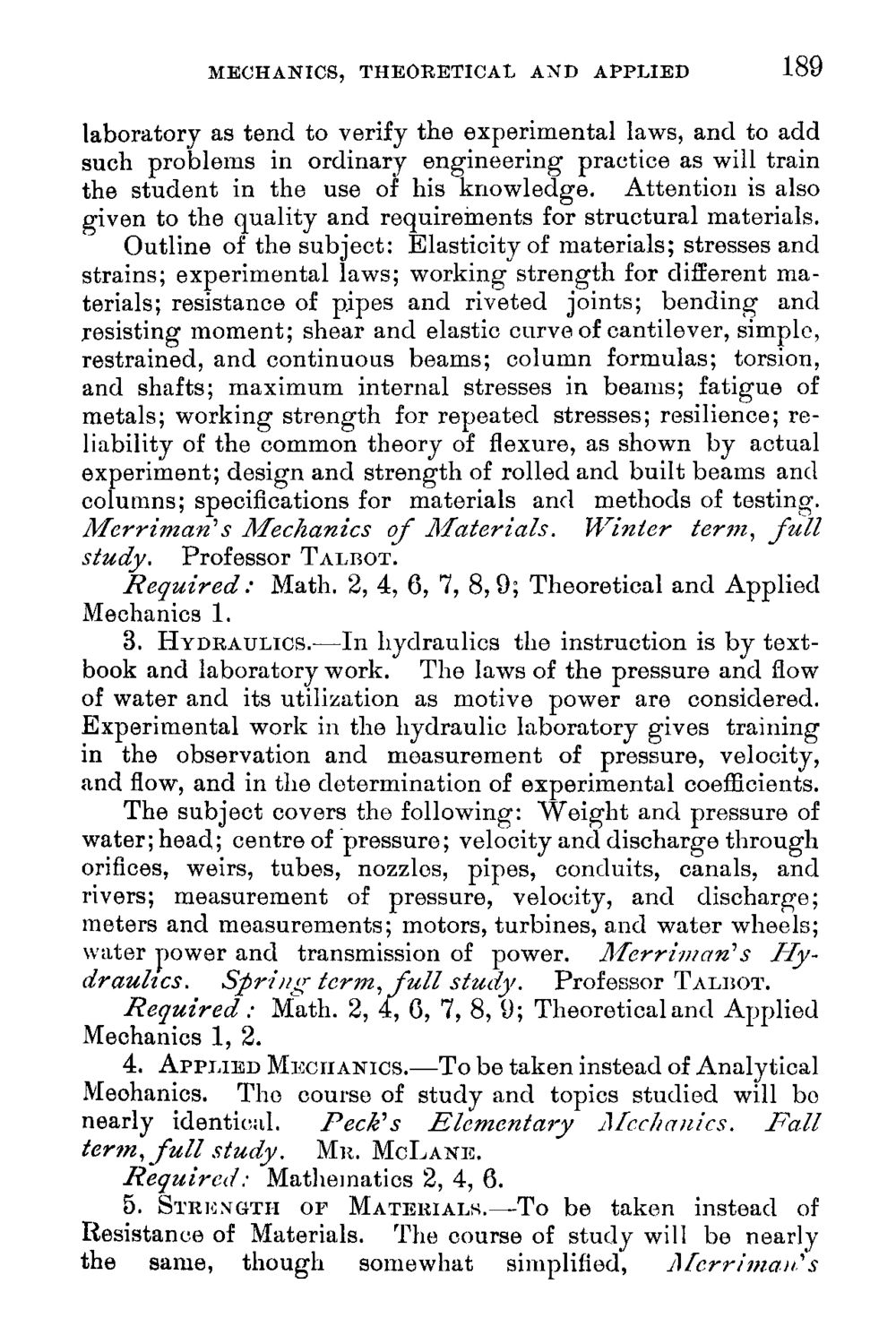| |
| |
Caption: Course Catalog - 1895-1896
This is a reduced-resolution page image for fast online browsing.

EXTRACTED TEXT FROM PAGE:
MECHANICS, THEORETICAL AND APPLIED 189 laboratory as tend to verify the experimental laws, and to add such problems in ordinary engineering practice as will train the student in the use of his knowledge. Attention is also given to the quality and requirements for structural materials. Outline of the subject: Elasticity of materials; stresses and strains; experimental laws; working strength for different materials; resistance of pipes and riveted joints; bending and resisting moment; shear and elastic curve of cantilever, simple, restrained, and continuous beams; column formulas; torsion, and shafts; maximum internal stresses in beams; fatigue of metals; working strength for repeated stresses; resilience; reliability of the common theory of flexure, as shown by actual experiment; design and strength of rolled and built beams and columns; specifications for materials and methods of testing. Merriman' s Mechanics of Materials. Winter term, full study. Professor TALBOT. Required: Math. 2, 4, 6, 7, 8,9; Theoretical and Applied Mechanics 1. 3. HYDRAULICS.—In hydraulics the instruction is by textbook and laboratory work. The laws of the pressure and flow of water and its utilization as motive power are considered. Experimental work in the hydraulic laboratory gives training in the observation and measurement of pressure, velocity, and flow, and in the determination of experimental coefficients. The subject covers the following: Weight and pressure of water; head; centre of pressure; velocity and discharge through orifices, weirs, tubes, nozzles, pipes, conduits, canals, and rivers; measurement of pressure, velocity, and discharge; meters and measurements; motors, turbines, and water wheels; water power and transmission of power. Merriman''s Hydraulics. Spring term, full study. Professor TALBOT. Required: Math. 2, 4, 0, 7, 8, 9; Theoretical and Applied Mechanics 1, 2. 4. APPLIED MECHANICS.—To be taken instead of Analytical Meohanics. The course of study and topics studied will bo nearly identical. Peck's Elementary Mechanics. Fall term, full study. MR. MCLANE. Required: Mathematics 2, 4, 6. 5. STRENGTH OP MATERIALS.—To be taken instead of Resistance of Materials. The course of study will be nearly the same, though somewhat simplified, Mcrrimaii's
| |